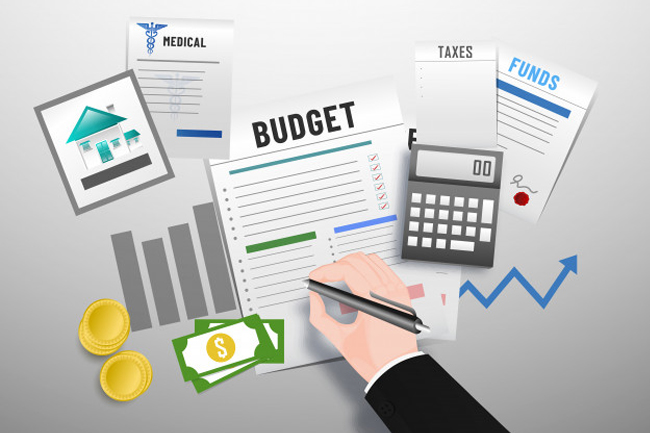Comprehensive Budget Solutions to Enhance Your Financial Management
In the realm of financial administration, the pursuit for performance and optimization is an ongoing trip for several people seeking to protect their economic future. By meticulously analyzing your present financial standing, establishing strategic monetary goals, and establishing a useful spending plan plan, you can begin to browse the complexities of your financial resources with quality and function.
Evaluating Your Present Financial Circumstance
Setting SMART Financial Goals
Having assessed your existing economic circumstance, the next action towards attaining economic security is setting SMART economic objectives. Wise stands for Specific, Quantifiable, Possible, Appropriate, and Time-bound. Specific objectives plainly define what you want to attain (budget template). Rather of setting an unclear objective like "conserve even more cash," a particular goal would be "conserve $500 per month." Measurable objectives enable you to track your progression and stay inspired. Achievable objectives are practical and available based upon your existing financial situation. It is very important to establish goals that are tough yet attainable. Pertinent objectives line up with your total monetary purposes and top priorities. Guarantee that your goals are purposeful and contribute to your financial health. Time-bound goals have a due date Check Out Your URL for completion, developing a sense of seriousness and assisting you stay concentrated. By establishing SMART monetary goals, you can produce a roadmap for your financial journey and work towards a much more safe and secure and thriving future.
Creating a Realistic Budget Strategy
Developing a thorough and reasonable budget strategy is basic to effective economic management. A realistic budget strategy acts as a roadmap for your economic choices, aiding you allocate resources efficiently and attain your financial objectives. To create a reasonable budget strategy, start by calculating your overall earnings from all sources. Next, list all your expenditures, including taken care of costs like rental fee or mortgage payments, utilities, and financial debt payments, as well as variable expenditures such as groceries, home entertainment, and transportation. Differentiate in between essential expenses and discretionary costs to focus on where your cash should go. Be straightforward concerning your investing routines and consider previous expenditures to properly approximate future ones. Embrace versatility in your budget to suit unexpected prices or adjustments in revenue. Consistently evaluation and readjust your budget as needed to remain on track in the direction of your financial goals. By creating a sensible budget strategy, you can successfully manage your finances, reduce monetary tension, and work in the direction of a secure monetary future.
Tracking Expenditures Successfully
Effectively tracking costs is important for keeping financial understanding and control over your budget. By faithfully checking where your money goes, you gain beneficial understandings right into your spending behaviors, determine areas for potential financial savings, and make certain that my response you stay within your monetary limits. By staying arranged and proactive in tracking your expenses, you equip on your own to make informed economic choices and accomplish your budgeting objectives.
Building a Reserve
Structure a durable emergency situation fund is an essential facet of audio monetary preparation. A reserve acts as a safety web, offering you with economic security in unforeseen circumstances such as medical emergency situations, job loss, or significant home fixings. To construct an effective emergency situation fund, begin by setting a particular cost savings objective. Monetary specialists suggest saving 3 to 6 months' well worth of living expenses. Think about automating your financial savings by establishing read review automatic transfers from your bank account to your emergency fund. This guarantees consistency in conserving and reduces the temptation to invest the cash elsewhere.

Conclusion
To conclude, executing detailed budget plan services can substantially improve monetary administration. By assessing the existing monetary situation, establishing clever monetary goals, creating a reasonable budget plan, monitoring expenditures successfully, and building an emergency situation fund, individuals can achieve greater monetary security and protection. It is crucial to take positive actions towards boosting monetary monitoring in order to achieve lasting economic success.
Comments on “Leading Factors to Utilize a Budget Template for Tracking Your Month-to-month Expenditures”